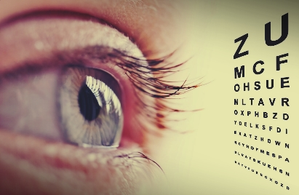
New York, Feb 24 (IANS) OpenAI’s based GPT-4 can match and in some cases outperform human ophthalmologists in the diagnosis and treatment of patients with glaucoma and retina disease, according to a research.
The study, published in JAMA Ophthalmology, suggests that advanced tools like Artificial Intelligence-(AI) based large language models (LLM), which are trained on vast amounts of data, text, and images, could play an important role in providing decision-making support to ophthalmologists in the diagnosis and management of cases involving glaucoma and retina disorders, which afflict millions of patients.
“The performance of GPT-4 in our study was quite eye-opening,” said lead author Andy Huang, ophthalmology resident at New York Eye and Ear Infirmary of Mount Sinai Hospital, US.
“We recognised the enormous potential of this AI system from the moment we started testing it and were fascinated to observe that GPT-4 could not only assist but in some cases match or exceed, the expertise of seasoned ophthalmic specialists,” Huang added.
Researchers matched the knowledge of the GPT-4 (Generative Pre-Training–Model 4) with 12 attending specialists and three senior trainees from the Department of Ophthalmology at the Icahn School of Medicine at Mount Sinai.
A basic set of 20 questions (10 each for glaucoma and retina) from the American Academy of Ophthalmology’s list of commonly asked questions by patients was randomly selected, along with 20 de-identified patient cases culled from Mount Sinai-affiliated eye clinics.
The results showed that AI matched or outperformed human specialists in both accuracy and completeness of its medical advice and assessments.
More specifically, AI demonstrated superior performance in response to glaucoma questions and case-management advice, while reflecting a more balanced outcome in retina questions, where AI matched humans in accuracy but exceeded them in completeness.
“AI was particularly surprising in its proficiency in handling both glaucoma and retina patient cases, matching the accuracy and completeness of diagnoses and treatment suggestions made by human doctors in a clinical note format,” said Louis R. Pasquale, Deputy Chair for Ophthalmology Research for the Department of Ophthalmology.
The findings “could serve as a reliable assistant to eye specialists by providing diagnostic support and potentially easing their workload, especially in complex cases or areas of high patient volume”, Dr. Huang said.
“For patients, the integration of AI into mainstream ophthalmic practice could result in quicker access to expert advice, coupled with more informed decision-making to guide their treatment.”
–IANS
rvt/pgh
Disclaimer
The information contained in this website is for general information purposes only. The information is provided by TodayIndia.news and while we endeavour to keep the information up to date and correct, we make no representations or warranties of any kind, express or implied, about the completeness, accuracy, reliability, suitability or availability with respect to the website or the information, products, services, or related graphics contained on the website for any purpose. Any reliance you place on such information is therefore strictly at your own risk.
In no event will we be liable for any loss or damage including without limitation, indirect or consequential loss or damage, or any loss or damage whatsoever arising from loss of data or profits arising out of, or in connection with, the use of this website.
Through this website you are able to link to other websites which are not under the control of TodayIndia.news We have no control over the nature, content and availability of those sites. The inclusion of any links does not necessarily imply a recommendation or endorse the views expressed within them.
Every effort is made to keep the website up and running smoothly. However, TodayIndia.news takes no responsibility for, and will not be liable for, the website being temporarily unavailable due to technical issues beyond our control.
For any legal details or query please visit original source link given with news or click on Go to Source.
Our translation service aims to offer the most accurate translation possible and we rarely experience any issues with news post. However, as the translation is carried out by third part tool there is a possibility for error to cause the occasional inaccuracy. We therefore require you to accept this disclaimer before confirming any translation news with us.
If you are not willing to accept this disclaimer then we recommend reading news post in its original language.











